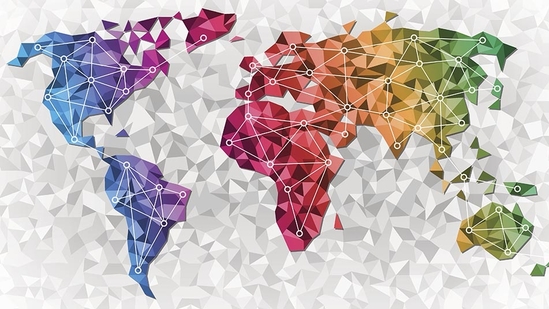The new ‘security dilemma’ and international relations
This article is authored by Sriparna Pathak.
Power competition has been a permanent mainstay of international relations since immemorial times. The aspirations of countries to assume the role of the leading actor in the international system has led to a myriad of forms of great power competition. The position of the hegemon of the system is an aspirational one for all States, not just because of associated prestige, but also because of the many benefits that the hegemon receives, in addition to being in a dominant position to maintain its continued existence in the international order. However, the role of the hegemon also includes spending militarily and economically to largely keep the international system stable and free from large-scale conflicts. Given the re-emergence of large-scale wars, as seen in the case of the Russia-Ukraine war, amidst what was understood to be a multipolar system, characterised by a preponderance of the US with severe competition emerging from China, established understandings of international relations have changed.

However, what the existing rules based international order was not prepared for was a renegotiation of the terms for ensuring stability of the system, form the hegemon, i.e. the US President Donald Trump’s usage of tariffs and transactionalism to ensure its hegemony, while seeking payments from friends and foes alike has led to a rethink of the terms of engagement of the hegemon. While the US continues to be the hegemon and will remain so for quite some time, its withdrawal from institutions like the World Health Organization, or complete stoppage of aid for other countries has led to the emergence of a new form of dilemma.
Traditionally the concept of security dilemma referred to the perceived dilemma in one or more of the main powers in the system, when a contending power increased its security, particularly through military means or scientific development or through an increase in economic prowess. The security dilemma dominated Cold War politics, dominated relations between other powers, which include examples such as India and China, Japan and China and so on; and continues to drive rivalry between the US and China. The dilemma that countries, and developing ones in particular, face includes the provision of security in all formats, ranging from medical to developmental. This could be understood better through the example of Afghanistan. The 2025 USAID funding freeze is understood to have drastic consequences as aid has been supporting health and humanitarian needs amid ongoing instability. The freeze could lead to 1,200 additional maternal deaths and 109,000 unintended pregnancies over three years due to disrupted reproductive health programmes, as noted by Pio Smith, UNFPA’s Asia Pacific regional director. Such cuts exacerbate Afghanistan’s already dire situation, with limited local capacity to compensate for lost aid.
Similarly, in eastern Congo, about 4.6 million people depend on food, water and health care funded by aid. The 2025 cuts can deepen humanitarian crisis, as the region continues to face ongoing conflict, cholera, and measles outbreaks. European aid alone cannot replace US contributions, which leaves millions at risk of disease and starvation. The cut of $ 200 million for the DRC is among the largest and adversely affects aid delivery.
Myanmar’s anti-malaria efforts have been heavily backed by USAID till 2025. From 2010 to 2023, malaria cases dropped drastically, although civil war and displacement since 2021 have strained progress. The withdrawal of USAID threatens to reverse the gains made so far, with fears increasing of malaria spilling into the Mekong region.
There is a plethora of such examples from across the globe. The question that arises here is how governments of such countries ensure security for their citizens. Expecting a change of heart in the hegemon is irrational. Countries will have to seek alternative donors and amalgamate donations from other countries or regions like Japan and Europe, or even reach out to regional blocs to offset losses. These will not be able to match the scale of USAID. To match what these countries had earlier, they will also have to seriously work on building local capacity and strengthening regional cooperation. A region-specific approach for countries belonging to different regions may be helpful. For example, South Asian countries can better utilise the funds that come from India and Japan, while seeking other partnerships. Traditional conflict-seeking behaviour with parties that could fund development or bolstering of local capacities will have to be done away with, so that the prime concern of governments--i.e. providing better for their own citizens can be addressed. Even within the era of multilateralism, a renegotiated world order with the US as the leading actor is here to stay, and self-help and a better focus on national interests will be the mainstay from here on.
This article is authored by Sriparna Pathak, professor, China Studies and International Relations, Jindal School of International Affairs, OP Jindal Global University, Sonipat.
All Access.
One Subscription.
Get 360° coverage—from daily headlines
to 100 year archives.



HT App & Website







